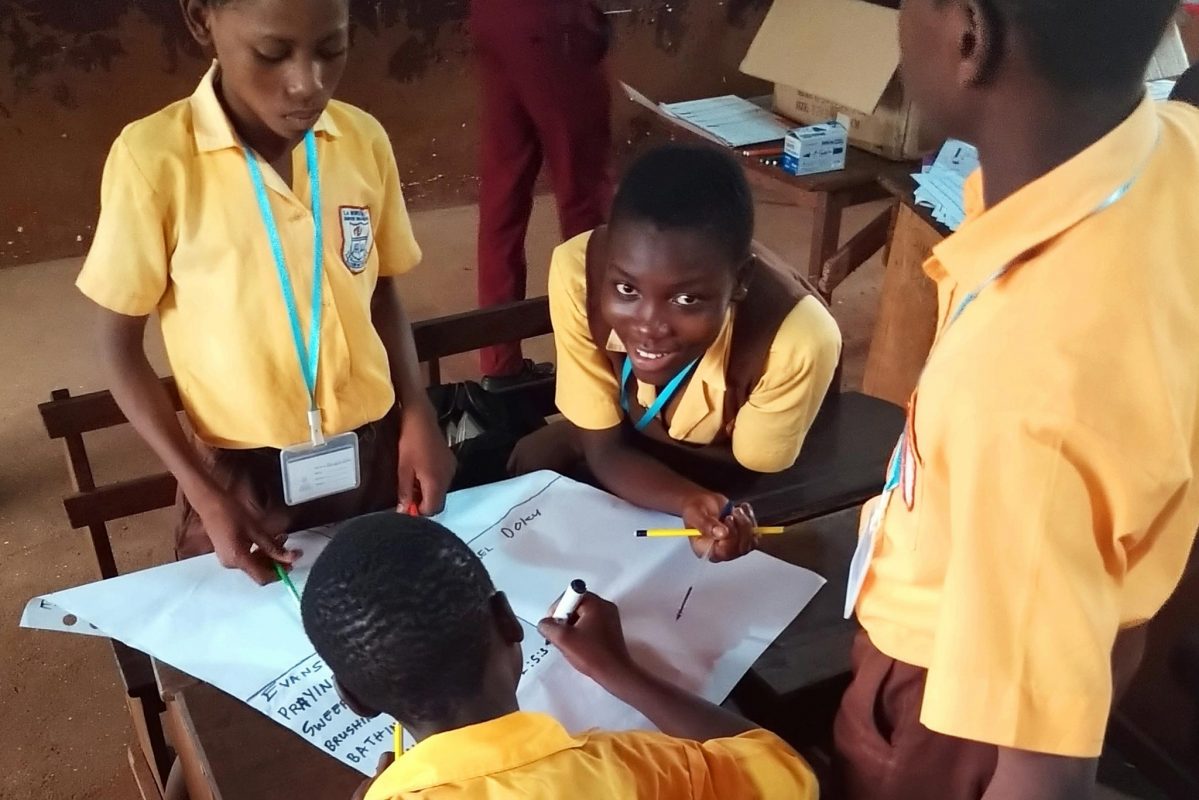Prince’s Trust International in partnership with Junior Achievement Africa, have been working across 5 Junior High Schools in Accra, Ghana to deliver a pilot of the Achieve Programme. This pilot is the first time the Achieve programme has been delivered in the Sub-Saharan Africa region. The programme was paused as the country went into lockdown due to COVID-19 in 2020 but restarted in March 2021.
Our History in Ghana
During CHOGM 2018, President Nana Addo Dankwa Akufo-Addo of Ghana invited HRH The Prince of Wales to bring his International Trust to benefit the young people of Ghana.
In April 2019, Prince’s Trust International traveled to Ghana to scope and understand the challenges young Ghanaians faced. Over the next few months the team met with local NGOs and organisations and even facilitated a workshop with Vodafone Ghana.
Impact Stat.Figure
Junior Achievement Africa
Founded in 1919, Junior Achievement Worldwide is a global organisation working to inspire and prepare young people to success in the global economy. Since its inception, JA programmes have impacted more than 125 million young people around the world.
Junior Achievement Africa was established in 1979 and now work across 15 countries, collectively reaching more than 240,000 youth each year. Their programmes are focussed on experiential learning in financial literacy, work readiness and entrepreneurship. They create pathways for employability, job creation and financial success, to prepare young people for the world of work.
The Achieve Programme
The Achieve Programme offers an alternative approach to learning for young people, enabling them to develop their skills and confidence through relevant, engaging and informal learning, in a non-traditional education setting.
PTI worked with teachers and volunteers from 5 Junior High Schools in Accra to train them to become Achieve Advisors within their schools and enable them to deliver the ‘Skills for School’ modules as part of this pilot. These modules focus on key personal development skills including communication, confidence and working with others, to support young people to better engage with their education and achieve better life outcomes.
During this pilot, over 100 young people across the 5 schools have been supported through the Skills for School module. One of the real strengths has been giving the teachers more time to work with a much smaller group of students, who have then had the opportunity and time to develop these key personal development skills. Over the 9-week pilot, the teachers were already seeing positives changes in their students. One teacher reported: “A student who was very shy before the programme, after some sessions was seen helping other students in their work”
The long-term aim of this programme is for these students to develop the skills they need to better engage with their education, be better prepared for life after school and to help foster a culture of peer-to-peer learning throughout the schools.
The most important skill in the Achieve Programme for me was confidence. At the start of the programme I was shy and didn’t have the confidence to do anything, but ongoing I actually found it very exciting and made many friends.
Lawrencia, Achieve Student

